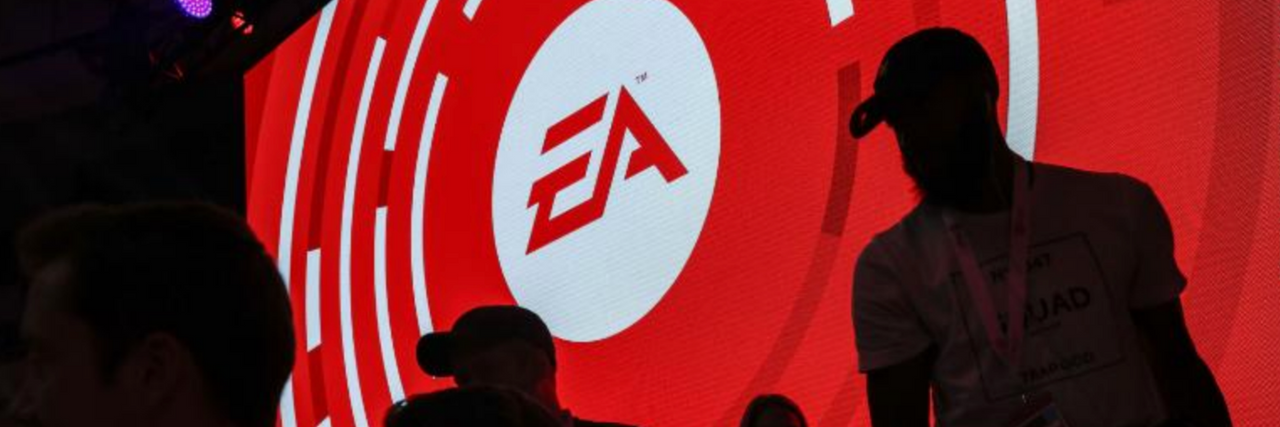3 Things to Remember Following News of the Jacksonville Shooter's Psychiatric Hospitalizations
Sometimes the news isn’t as straightforward as it’s made to seem. Elizabeth Cassidy, The Mighty’s reporter, explains what to keep in mind if you see this topic or similar stories in your newsfeed. This is The Mighty Takeaway.
Editor's Note
If you experience suicidal thoughts, the following post could be potentially triggering. You can contact the Crisis Text Line by texting “START” to 741741.
The latest mass shooting happened Sunday at an Electronic Arts video game tournament in Jacksonville, Florida. Like most news outlets do, the Associated Press looked into the past of the shooter. The AP reported that the shooter had been hospitalized twice for mental illness and was prescribed both antipsychotics and antidepressants.
In response to the news about the Jacksonville shooter, people began sharing on Twitter about their experiences with hospitalization to dispel the association between hospitalization for mental health issues and violence. Abby Spice responded to the AP’s tweet about the shooter’s hospitalization asking people to retweet her tweet if they had been hospitalized but never shot anyone.
Retweet if you or someone you know has been hospitalized for mental illness yet never shot anyone. https://t.co/B3YOKRuemt
— Abby Spice-Danvers (@clapifyoulikeme) August 27, 2018
Spice’s tweet has been retweeted almost 3,000 times with people sharing their experiences with hospitalization and their lack of violent behavior toward others. Some noted that a lack of access to guns did prevent them from violent acts, but usually toward themselves.
For those with mental health issues, when the conversation around mental health comes up after a shooting, it can feel isolating and frustrating. Though we’ve made progress in talking openly about mental health as a society, it’s still often only talked about after a prominent suicide or a mass shooting. Here are three things to remember when you hear people talk about mental illness and violence following the Jacksonville shooting.
1. Suicides by gun are a larger issue than homicides in the mental health community.
Suicides by gun make up the largest portion of all suicides in the U.S. About half of suicides in the U.S. are carried out with guns. There is evidence that stricter access would reduce the suicide rate as many people who try to kill themselves end up stopping mid-attempt, and firearms are the most lethal suicide method. Suicides typically happen in a heightened moment of distress when the person can’t see another way out, but this level of distress has to come down eventually. Most people who use guns don’t have a chance to come out of this tunnel vision. According to Dan Gross, president of the Brady Center and Campaign to Prevent Gun Violence:
Most people who survive a suicide attempt do not go on to die by suicide, but only one in 10 people who attempt suicide by gun get that second chance. Limiting easy access to a gun for someone who considers or even attempts suicide can literally be the difference between life and death.
2. Violence perpetrated by those with mental illnesses is overemphasized.
While we can’t completely rule out the role of mental illness in this shooting or other violent actions, using mental illness as an explanation for violence tends to be overemphasized, according to researchers. It also intensifies the stigma around mental illness.
In a research article, epidemiologist Heather Stuart said mental illnesses are not a sufficient cause of violence. The largest determinants of violent acts are tied to socio-demographic factors like being young and male and having a lower socioeconomic status. Stuart also said the public exaggerates the relationship between mental illness and violence, conflating their personal risk of being harmed by a person with mental illness.
Overall, only 3 to 5 percent of violence in society can be attributed to serious mental illness. People with serious mental illnesses are actually 10 times more likely to be victims of violence than those without mental illnesses. Despite these facts, people with mental illnesses are often made to seem like the majority of perpetrators. It’s understandable that people reeling after a traumatic event want something or someone to blame, but facts show mental illness is not usually the culprit.
“Framing the conversation about gun violence in the context of mental illness does a disservice to the victims of violence and unfairly stigmatizes the many others with mental illness,” Jessica Henderson Daniel, president of the American Psychological Association, said following the shooting at Stoneman Douglas High School last February. “More important, it does not direct us to appropriate solutions to this public health crisis.”
3. Just because someone has been hospitalized in a psychiatric hospital, doesn’t mean they’re more likely to be violent. But, rates of violence can increase directly before or after a hospitalization.
There’s no “one” type of person who enters a psychiatric hospital — and we can’t assume a past hospitalization means someone is more likely to be violent now. Rates of violence from people with mental illness do increase before and after the time of a hospitalization. In the Jacksonville shooting, the shooter was hospitalized years ago as an adolescent, and research around violence and hospitalization show that the risk of violence associated with hospitalization deteriorates as time goes by.
One study found a “modest” increase in violence in people with psychiatric hospitalizations, but this increase was also affected by social environments such as early exposure to violence. There was also a correlation between violence and substance abuse, which has a stronger relation to violent behavior than other mental illnesses.
While violence from people hospitalized does increase moderately, suicide rates are a larger concern because rates are higher for most people who have recently been discharged from the hospital. Suicide rates are actually higher for any hospital patient following discharge, but the rate is higher for those admitted for psychiatric reasons, three months following discharge.
Editor’s note: The Mighty has chosen to omit the name of the shooter.
Photo via Twitter.

